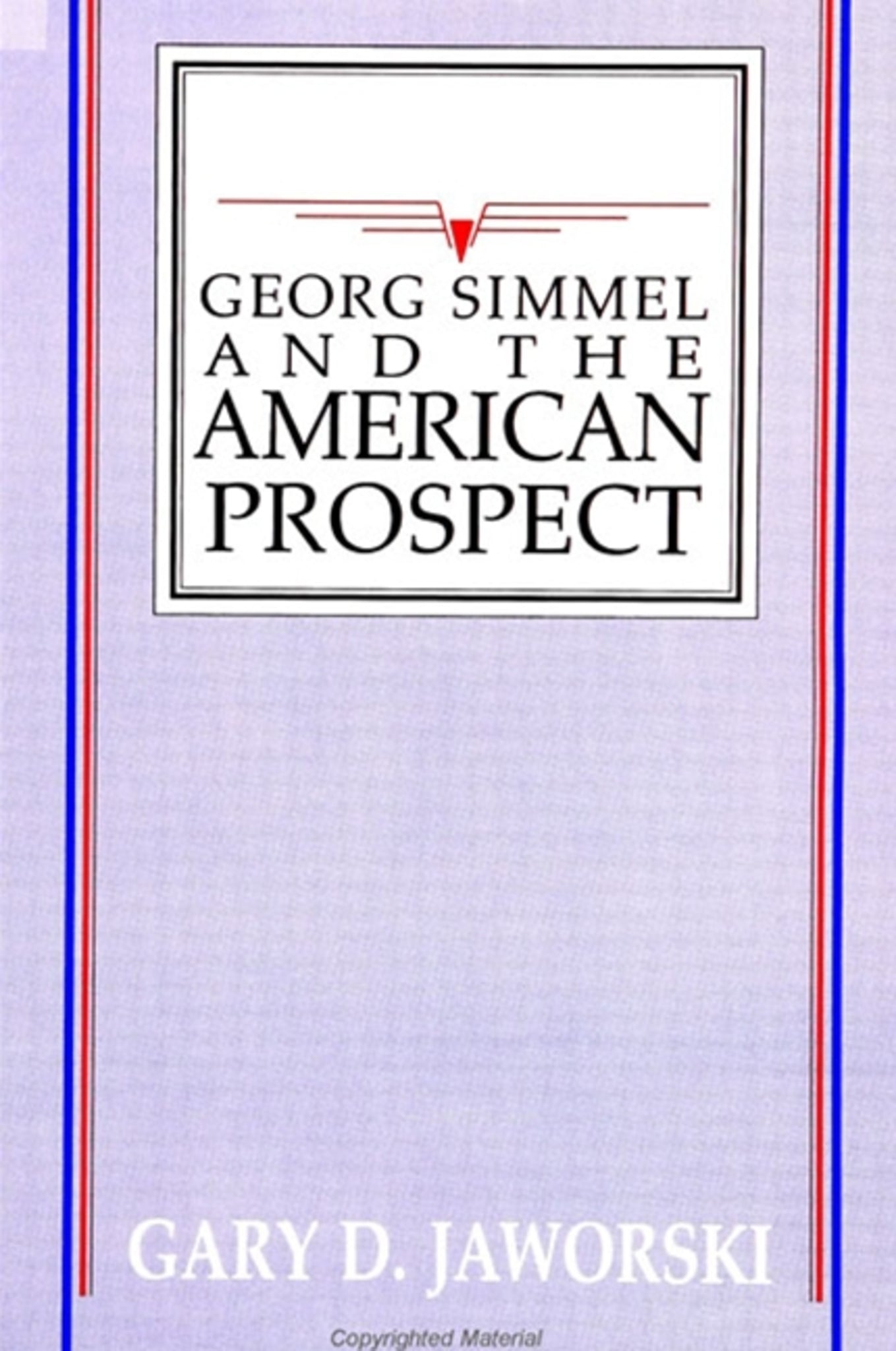We're sorry. An error has occurred
Please cancel or retry.
Georg Simmel and the American Prospect

Some error occured while loading the Quick View. Please close the Quick View and try reloading the page.
Couldn't load pickup availability
- Format:
-
09 January 1997

This first book-length examination of the American reception of German philosopher and sociologist Georg Simmel explores the practical and strategic uses of Simmel's ideas.
This first book-length examination of the American reception of Georg Simmel, German philosopher and sociologist, offers a compelling new account of the transatlantic journey of Simmel's ideas. Jaworski draws on archival data, correspondence, interviews, and detailed textual analysis to explore the practical and strategic uses of Simmel's writings by a range of American social thinkers. These thinkers include the Chicago School figures Albion Small, Robert E. Park, and Everett C. Hughes; functionalist sociologists Talcott Parsons, Robert K. Merton, Lewis A. Coser, and Kaspar D. Naegele; and, more recently, Erving Goffman and postmodernists Deena and Michael Weinstein.
Jaworski shows that the way in which Americans received Simmel was intricately related to efforts to transform American society. A recently discovered essay on Simmel by the emigre sociologist Albert Salomon, "Georg Simmel Reconsidered," and included here with an introduction and notes by Jaworski, provides added dimension to this important study.


"The author has advanced the analysis of the Simmel reception in two important respects. Instead of simply dredging texts by American sociologists for evidence of Simmel's ideas, he studies the production of texts by examining earlier drafts, correspondence, unpublished research notes, and, when possible and relevant, personal recollections. In addition, Jaworski analyzes the Simmel reception carefully and nonspeculatively by tying the production of texts to the social and cultural context in which it occurred. As a result, he has placed the investigation of the Simmel reception on a new analytical and historiographic plane. By introducing more rigorous standards of investigation into Simmel scholarship, Jaworski not only has been able to make discoveries and develop lines of inquiry that others have missed, but also has raised the methodological level of analysis." — Guy Oakes, Jack T. Kvernland Professor, Monmouth University
Preface
Acknowledgments
Part One: Simmel and the Chicago Sociologists
1. Translation as Social Action: The Early American Simmel Translations
2. Park, Doyle, and Hughes: Neglected Antecedents of Goffman's Theory of Ceremony
Part Two: Simmel and Functionalist Sociology
3. Simmel's Contribution to Parson's Action Theory and Its Fate
4. A Note on Kaspar D. Naegele
5. Robert K. Merton's Extension of Simmel's Ubersehbar
6. The Historical and Contemporary Importance of Coser's Functions
Part Three: Simmel as Modernist and Postmodernist
7. Georg Simmel Reconsidered, by Albert Salomon
Edited, with an Introduction and Notes by Gary D. Jaworski
8. Simmel and the American Postmodernists
Notes
References
Index



